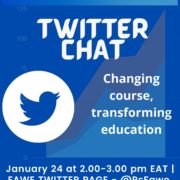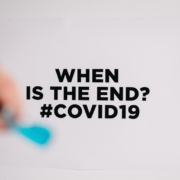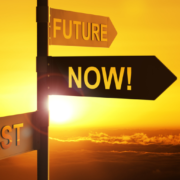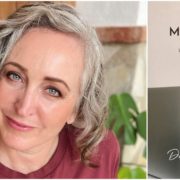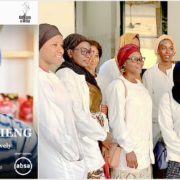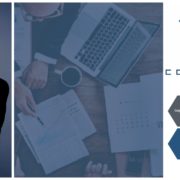by Lionesses of Africa Operations Department
We woke to find it was Davos week! The gathering of the ‘Great and the Good’ of the finance world under the World Economic Forum banner who meet once a year in Switzerland to discuss, deliberate and invest, is as regular as a one of their famous Cuckoo Clocks. Sadly, at the last moment, and especially for those already in their Ski Jackets, Covid hit again and Davos was postponed until the summer and replaced by a few on-line speeches. All was not lost however, because one who is always at this event, a certain Mr. Larry Fink, CEO of BlackRock, the world’s largest investment firm with many US$ billions under management, recently published his annual letter to shareholders. In this there is a call to arms for all CEOs:
“…your voice is more important than ever. It’s never been more essential for CEOs to have a consistent voice, a clear purpose, a coherent strategy, and a long-term view. Your company’s purpose is its north star in this tumultuous environment.”
In case we were unsure, in a large yellow block, he adds:
“Putting your company’s purpose at the foundation of your relationships with your stakeholders is critical to long-term success.”
Rather nicely continuing from our last article we thought, entitled: “Harness the power of purpose to your advantage.” (here), and taking a moment we started to think of Mr. Fink reaching for his Lioness Weekender over his Cornflakes in order to gather his thoughts for his shareholders (until we awoke from our dream and realized that his letter had possibly (probably – Ed.) been written a little before we put pen to paper last weekend…).
Still, our ego (and dreams!) aside, what has the world’s largest capitalist to add about purpose? As an unashamed capitalist and a large and long term believer that: “…the fair pursuit of profit is still what animates markets; and long-term profitability is the measure by which markets will ultimately determine your company’s success.”, just how does ‘People and Planet’ fit in with ‘Purpose’, along with the other P, ‘Profit’ in his eyes?
In this Mr.Fink did not disappoint:
“This year’s letter focuses on embracing the power of capitalism as a catalyst for change and the importance of companies delivering for all their stakeholders. Companies today must create value for their employees, clients, and communities in order to deliver long-term value for their shareholders.”
We would certainly agree with any statement that highlights ‘creating value for employees, clients and communities’, as indeed it is something that we have celebrated for years whilst showing the world how Lionesses passionately lead in this.
He continues his demand for action:
“COVID-19 has also deepened the erosion of trust in traditional institutions and exacerbated polarization in many Western societies.…Employees are increasingly looking to their employer as the most trusted, competent, and ethical source of information – more so than government, the media, and NGOs.”
We are indeed seeing more and more surveys showing that “Employees are increasingly looking to their employer as the most trusted, competent, and ethical source of information…”. This creates a huge responsibility on all of us within the business world, but also of course an enormous opportunity. This trust is incredibly powerful at a time when more and more consumers are wanting to know the security of the supply chain, ‘from field to table’. Is this Vegan – no seriously, is it really? Have the farmers been paid properly – no seriously – have they? What is the source of this material, does the factory use child labor, too much plastic, dump toxic waste in rivers? …and so on.
As we wrote last week, if you harness the power of purpose with your employees, they will stay and not only build with you but passionately support you, so Mr.Fink confirms: “Employees need to understand and connect with your purpose; and when they do, they can be your staunchest advocates.” Importantly he takes this to the next level: “Customers want to see and hear what you stand for as they increasingly look to do business with companies that share their values. And shareholders need to understand the guiding principle driving your vision and mission. They will be more likely to support you in difficult moments if they have a clear understanding of your strategy and what is behind it.”
The Financial Times confirms there is a move in this direction (here): “The phrase “responsible business” might prompt a cynical smirk — and the suggestion that it is an oxymoron. But a significant number of companies are embracing the principle of people and planet alongside profit.”
They go on to point out that although there is a move towards People, Planet and Purpose, sadly within the globe’s business schools “…teaching cases [which sit at the heart of coursework for many business schools] remain dominated by profit-maximising, western, white, male chief executives as role models.”
This is why Mr. Fink’s letter is so important. When such Titans of the business and investing world start to push in the same direction that we have been advocating for years and our membership have been practicing and daily putting into action, then who knows. Perhaps this will be the catalyst for real action, for actual change. Heaven knows we have been promised this for so long now, yet even the most basic issues are not moving, such as the amount of investment in women led businesses (The latest data showing that start-ups in Africa raised over $4.3 billion in 2021, yet 82% of the money went to those with a single male founder or an all-male founding team, versus 0.95% for their female counterparts, see here – sigh, plus ça change, plus c’est la même chose).
Still, let us keep the faith, let us continue to show the way with our employees, clients and communities. As Melanie wrote this week in one of her ‘Good Morning Lionesses’ blogs (here) entitled: “Build a business with impact”.
“…Businesses that make an impact tend to be led by passionate founders who care about the work they do, and recognize that they can make a difference by being authentic and using their business voices for positive change…it’s essential to create a value driven strategy [through] talking to employees and partners, and creating a structure where everyone knows their efforts are contributing to something bigger than themselves…”.
Although at times the change we want in the world may be slow, even glacial at times, we through our actions can continue to be the “catalyst for change” the globe and now Mr. Fink, demand. In this we, along with Melanie and Mr. Fink (no doubt now without his ski jacket) surely agree.
Stay safe.



